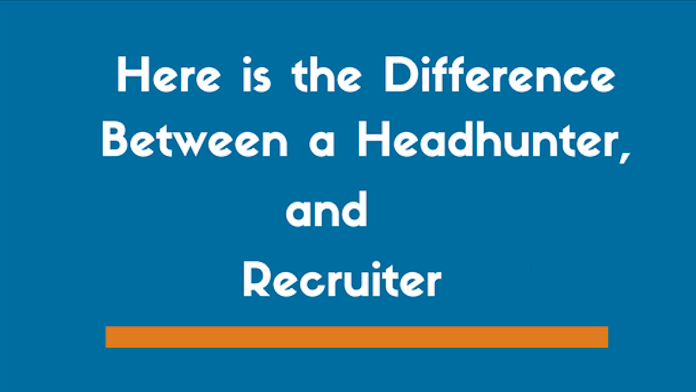If you are in the middle of a job search, you may hear the words “recruiter” and “headhunter” come up. Both are considered “good people to know” when you are a job seeker, but what exactly makes them different?
When you find out what each person does, it will also help you see which person you should try to connect with as a job seeker.
Who works for who?
Recruiters
- Recruiters will usually work for one or several companies with the goal of filling any positions that are currently available.
Headhunters
- Headhunters work on a contingency basis, only getting paid when they find an employee for a company. (Learn about retained search firms.)
Who gets paid by who?
Recruiters
- Recruiters are often responsible for screening and interviewing job seekers. They will often work for employment firms on a contractual basis with the goal of helping clients find suitable employees. If you are a job seeker working with a recruiter, traditionally, you should not be charged money. The recruiter is already being paid by the company seeking employees.
Headhunters
- Headhunters work on a commission basis. They will either be paid by the job seeker looking for work or by the companies hiring. Given headhunters work on a commission-basis, there is a greater motivation for the headhunter to find clients work faster and at a larger salary. This also may affect who headhunters will work with, so they will tend to help people looking for higher salaries and are desirable to companies.
What do they do for a job seeker’s job search?
Recruiters
- Given the recruiter is working with several different companies and may have your resume on file, a recruiter may be more useful for helping job seekers improve their search. Recruiters will have a candidate’s resume on file and may share information on what the job candidate does right or wrong during interviews. If they think you are right for a position, they may work with a job candidate to develop him or her for a position. Recruiters may be more open about the ways a job candidate can improve.
Headhunters
- Headhunters are usually contacted when a company is having a difficult time finding a person to fill a position. Their situation is a bit more urgent, so they will not do much for job seekers who are ill-prepared to interview and they certainly will not waste time selling a job candidate on a new position.
- Headhunters will also not tell you why you did not get the job, and won’t tell you when they send you on an interview for a job you have no chance of getting.
- Headhunters are not in the position of developing candidates for new jobs or making them more attractive.
Common threads
- Both recruiters and headhunters are easy to find on LinkedIn and they are good people to know if you are job seeking.
- When it comes to either working with a recruiter or headhunter, remember the person who should care most about your job search is “YOU”, even when you make the decision to pay for assistance in finding work.
- You know yourself better than anyone and need to know what you want in your career before anyone can begin to assist you properly.


